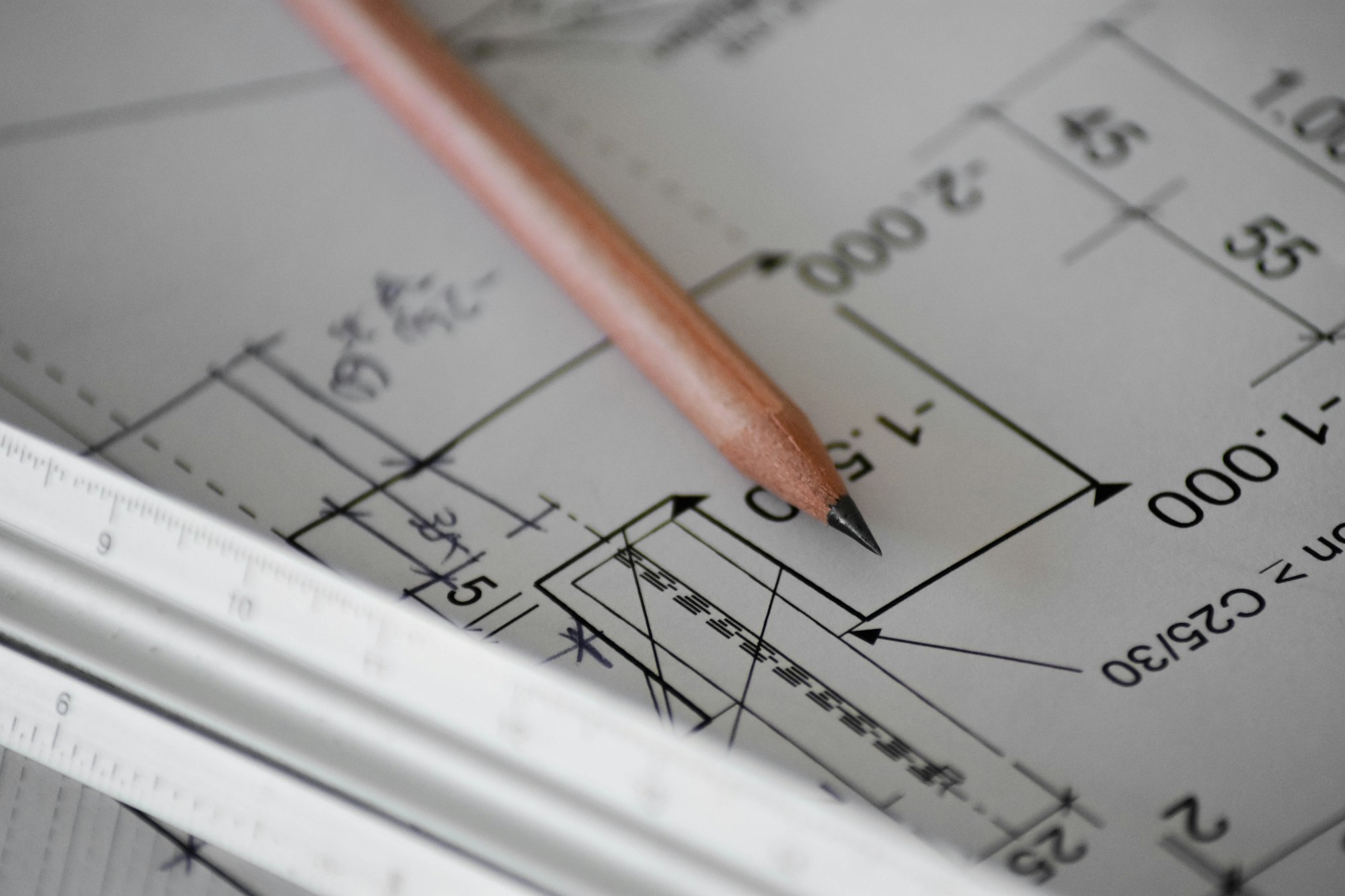Entering into a home building contract is a significant decision that requires careful consideration and preparation. Whether you're building your dream home or making substantial renovations, understanding the critical aspects of the contract can save you from potential pitfalls.
In this post, we'll walk you through essential questions you should ask yourself before signing a home building contract. These questions cover everything from land ownership and site conditions to financial readiness and contract specifics. By addressing these areas, you'll be better equipped to enter into a contract confidently and ensure a smoother building process with less "surprises."
Do you own the land?
Are there any easements, rights of way, stock routes or RTA affectations which might affect what you build and where? Some contracts require the owners to prove ownership of the land. If so you should annex proof of ownership (e.g. a copy of the Certificate of Title) to the contract. Proof of ownership is often required by home building contracts before the builder is required to commence building and failure to provide the proof may be a breach of the contract.
Site Problems
Have you checked the site for reactive soil, fill, landslip potential, rocky outcrops requiring removal, watercourses (overland flow of water) and springs that might affect building works and for features such as cliffs or gullies that will affect access for builders or occupants? To prevent the builder claiming extra costs for unusual site conditions which an ordinary site inspection should have revealed to him, insert a term to the effect that:- “The builder is deemed to have visited the site before contracting and to have made himself aware of all site conditions perceivable by visual inspection.”
Is the Site Contaminated?
Are there structures on site containing asbestos or is the soil contaminated in any way so as to require remediation?
All Weather Access to Land
Does the contract require the owner to provide the builder with all weather access to the land? If the builder has to provide this access it will be at the owner’s expense and will be an additional charge. In the case of some sites this could be very costly. I recommend the insertion in the contract of a statement that:-“The builder has visited the site and warrants that all weather access of the type referred to will cost $…………….”
Availability of Services
Are water, gas, electricity or sewage available to the site? Does the house have to be constructed to a certain level to enable gravity discharge to the sewer? Will the owner have to pay for headworks for the supply of any of these services?
Development Approvals
What are the council’s usual requirements? Can the you afford to meet them?
The Building Approval
Does the building approval require any additional construction or works not included in the builder’s quotation? Get the builder to amend the quotation and specifically include the additional work and give a cost for it. Annex the building approval to the contract.
The Approved Plans
Are the plans which are the basis of the quotation and the contract the approved plans? Are they are identified in the contract?
Funding
Have you got the funds to pay for the works or are the funds guaranteed? Some contracts require that the builder be given proof that the owners have the funds before the builder is required to commence building. Failure to provide that proof may be a breach. Annex proof that you have the funds (e.g. copy of a letter from the finance provider) to the contract.
The Quotation Should Cover the Whole Project
Is all the work to be done clearly set out in the plans and specifications? If not ensure that the additional matters are referred to in the quotation. Annex the quotation to the contract.
Omissions from Quotation
Does the quotation exclude any part of the works? Sometimes the builder omits to include necessary works in his quotation and then seeks to claim for them later as extras. Insert the following:-“Except where an express exclusion has been made herein, the Contract Price includes all matters that could be reasonably necessary for the completion of the works covered by the agreement and the plans.
Owners in Residence
Will you be residing in the premises whilst the building work is going on? Where the owners are to be in residence during construction or alterations most of the standard building contracts are not applicable since they contemplate the builder having exclusive possession of the site. For example, in most of the standard building contracts the owner’s entry into occupation of any part of the premises releases the builder from his or her obligation to progress the works to practical completion. There are contracts specially designed for in residence construction, such as the Housing Industry Association Contract for Renovations and Additions, and these should be used, with appropriate modifications.
Builder’s Licence
Does the builder hold the appropriate licence? Visit the Office of Fair Trading (or QBCC License Search if you live in QLD) website to check that the builder’s licence matches the name on the contract, matches the name on the certificate of insurance, entitles him or her to do the building work contemplated, and is current, how long he or she has been licensed, whether there has been any disciplinary action taken against him or her by the Office and whether there are any current complaints against him or her being investigated by the Office.
Exhibition Homes (Display Homes)
Have the owners seen an exhibition (display) home or other houses built by the builder? The owners should, if possible, examine an exhibition home or other examples of the work of the builder prior to deciding to engage him. If they find the exhibition home satisfactory and engage the builder on the strength of it they will naturally expect a home of a matching high standard.
Section 9 (3) of the Building Act 1989 (NSW) provides that if an owner enters into a home building contract with a licensed builder to build a home similar to the builder’s exhibition home, and the license holder knows that it was entered into after the owner inspected the home, and the contract in any way identifies the dwelling to be built by reference to the home, then the contract is to be taken to contain a provision that the dwelling will be constructed according to the same plans and specifications, standards of workmanship and quality of materials as the exhibition home, except to the extent (if any) that the contract and its accompanying plans and specifications provide for any departure from them.
Some builders, perhaps to avoid the effects of this provision, will give a different name to the house model in the contract to that which the owners inspected. For example the contract will refer to a “Thames”, instead of what the owner inspected which was a “Regent”.
The solution is to amend the contract to refer to the actual model inspected by the owners: “The house is to be constructed to the same specifications, standards of workmanship and quality of materials as the builder’s display home which the owners inspected at …………..(address)” This incorporates the all important terms as to quality, even though the plans may differ.
Whether the Plans Are to Be Provided by the Builder or the Owners
If plans are to be provided by the builder the contract should provide that:- “The builder warrants that the Plans are accurate and correct in every way and not in breach of copyright and that any delay arising from inaccuracy or in correctness in the Plans and Specifications or from a breach of copyright will not entitle the builder to an extension of time or an additional payment and that any variations so arising will be at the builder’s cost.”
Variations
What is the profit percentage charge for variations? The charge for variations is generally cost plus a percentage (which should not exceed 20%). Variations are very costly. You should discuss and go over the plans very carefully many times and make all necessary amendments before contracting to avoid the need for any variations.
Provisional Sums and Prime Cost Items
Are Provisional and PC sums clearly set out? Are they warranted to be reasonable estimates based on current costs? I suggest you insert a term as follows:-“Where the provisional sums are included in the Contract Price the Contractor warrants that those sums are reasonable estimates based on costs current at the time of contracting”.
Profit Margin
Is the builder’s profit margin on increases of provisional items reasonable? (i.e. between 10% and 20% of the cost)
Deposit
Is the deposit within the legal limit? (The Home Building Act sets limits on the amount of deposit that can be required under the contract of not more than 10% if the contract price is under $20,000.00, if over that sum then not more than 5 %.)
The Commencement Date and the Completion Date
Are they clearly set out?
Progress Payments
If progress payments are milestone payments e.g. specific sums payable on the achievement of certain stages such as completion of slab, completion of frame etc, do the sums reflect the value of work done to that stage. Insert the following:-“The Contractor warrants that the Progress Payments set out herein equate to the value of the work done at that stage of the Building Works.”
Failure to Pay Progress Payments
This problem might be dealt with as follows:-“Notwithstanding anything herein contained, failure to pay progress payments shall not constitute a breach of contract nor shall it entitle the builder to determine the contract where within the time for making such a payment the owner deposits the disputed sum into an interest bearing account in the joint names of himself and the builder and from which money cannot be withdrawn without the consent of both parties and gives the builder notice in writing of his reasons for doing so.” Even where the contract already requires the money to be in such a joint account prior to commencement of works, this clause is, I believe, still is necessary.
Variation Procedure
Does the Owner understand the procedure for variations (in writing and costed before being done) and is the margin for variations reasonable? (between 15% to 20% of cost).
Extension of Time Procedure
Does the owner understand the procedure for extension of time?
Dispute Resolution Procedure
Is the dispute resolution procedure fair? If the parties agree to arbitrate, is the arbitrator or expert to be chosen by an independent person such as the the Institute of Arbitrators and Mediators Australia or by the President of the builder’s own association (not recommended)?
Liquidated Damages
Is there a liquidated damages clause? There should be. Even if there is, it may be deliberately drafted to be ineffective. For example the latest MBA BC4 contract provides for liquidated damages all right, but they says that the liquidated damages cannot be deducted until Practical Completion has been achieved. If the final progress claim is a small one, which it usually is, that means there will be insufficient money to withhold to satisfy the Owner’s rights to liquidated damages. That effectively deprives the Owner of the benefit of the liquidated damages clause. By way of further example, the HIA contracts provide for liquidated damages but say that if the rate of liquidated damages is not inserted in the contract then the rate shall be $1.00 per day
To select an appropriate rate of liquidated damages:- (a) If you are living in rented accommodation or will be if the house is not completed on time then find out the notice period on the accommodation and insert that as the minimum unit of time and the rent for that period as the rate of liquidated damages e.g.:- “.$……for each and every (week/month) or part thereof after the period shown in Clause 5……”. if the homeowner is paying for storage of their furniture etc that
(b) If you are not renting then fix a daily rate based on the interest you will be paying on your building finance. If you are not renting or paying interest then apply the short term money market rate to the monies you will invest in the project. Remember, liquidated damages need only be a rough approximation of the anticipated losses.
Practical Completion
Are the requirements for practical completion clearly set out? In the past, some builders have served Notices of Practical Completion before the site has been cleared of building material and rubbish. I recommend an additional term as follows:-“A Notice of Practical Completion cannot be validly served under this agreement until all rubbish and surplus material has been removed from the site.”
The Housing Industry Association NSW Residential Building Contract for New Dwellings, and the Master Builders Association BC 4, both have drafting problems in their sections dealing with Practical Completion in that no provision is made for a time by which the builder should have completed minor defects and omissions. I recommend an additional term as follows:-“Within 7 business days of the service of the Notice of Practical Completion the owner may give the builder a notice of those things still required by the contract to be completed and the builder shall complete those items within the following … days.”
Conclusion
To summarise, before signing a home building contract, it's crucial to thoroughly evaluate several key factors. First, confirm land ownership and check for any site issues like easements or contamination.
Ensure all-weather access and the availability of essential services like water, gas, and electricity. Review development and building approvals to understand any additional construction requirements.
Verify the builder’s licence and inspect their previous work to ensure quality. Make sure funding is secured and the quotation covers the entire project, including any potential omissions. Understand the terms regarding variations, progress payments, and dispute resolution.
Finally, ensure practical completion terms are clear and include provisions for liquidated damages. By addressing these points, you'll be well-prepared to enter a home building contract with confidence and clarity, minimising potential risks and ensuring a smoother construction process.




















